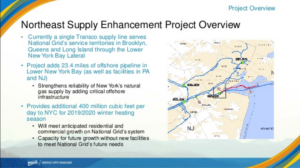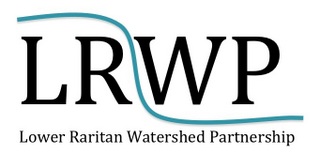Water Protection in Central New Jersey
Water Protectors in Standing Rock, North Dakota protesting the Dakota Access Pipeline brought attention to serious flaws in the federal environmental review and approval process for crude oil and natural gas pipeline projects. The Water Protectors argued that all infrastructure projects need to include a truly comprehensive Environmental Impact Statement (EIS) that evaluates impacts to our natural and cultural assets.
While the federal oversights affecting Standing Rock were particularly egregious, the legacy of compromised Federal Energy Regulatory Commission (FERC) environmental review processes should be of concern to New Jersey residents as well. Oil and gas pipelines already fragment our environment as they crisscross the state. Our Lower Raritan Watershed may be impacted further by the proposed. This project includes a 3.4-mile-long, 26-inch-diameter pipeline loop in Middlesex County, and a 23.4-mile-long, 26-inch-diameter pipeline loop (called the “Raritan Bay Loop”) beginning at the Middlesex County coast and crossing New Jersey and New York State marine waters.

Because the Lower Raritan Watershed Partnership has concerns that the pipeline would have irreversible impacts on our communities, watershed ecology and marine habitat, we joined dozens of other concerned citizens and environmental groups at the April 20 meeting of the Middlesex County Freeholders to encourage elected officials to take action on a project that would pose significant risks. The Home News covered our public statements, and the Middlesex County Freeholder’s response.
And on April 25, the LRWP applied for intervenor status to address the Federal Energy Regulatory Commission (FERC) on the Williams/Transcontinental Application for the Northeast Supply Enhancement (NESE) Pipeline Project (Docket Number CP17-101). Becoming an intervenor provides legal standing in the proceeding, and obligates FERC to address any comments we may submit. The LRWP included the following in our application for intervenor status:
“The Transco Pipeline proposals pose significant risks to our Central New Jersey communities. These projects will solely benefit New York City markets, yet our New Jersey communities would bear significant public health and economic risks – including increased rates of leukemia, lymphomas, respiratory disorders and other diseases – while receiving little or no benefits. We must not expose our local communities to a high-risk proposition with little to no reward.
The Transco Pipeline proposals will harm our environment and the habitat of our Raritan Watershed and Raritan Bay. The building of pipeline infrastructure and the transport of natural gas from the Marcellus Shale region to New York will fragment our natural habitat, and disrupt commercial and recreational marine activities for residents and visitors. Our communities are working hard to restore landscapes destroyed by decades of industrial dumping and toxic pollution, let’s not reverse this positive trend.
The Transco Pipeline proposals are unnecessary. The Transco Pipeline would be a redundant expansion of industrial natural gas infrastructure through our Middlesex County, Somerset County and Bayshore communities. The LRWP recognizes that aging rail, bridge and other infrastructure that currently accommodates fuel transport poses risks that could lead to devastating spills in our waterways. This serious concern that can be addressed by two-pronged strategy: significant investment in the repair and maintenance of our existing infrastructure, and shifting investments to safe, clean renewable energy.
The Transco Pipeline proposals are not what our communities want. The overwhelmingly negative feedback on the project during community meetings has made it clear that this project does not have the support of community residents!”
